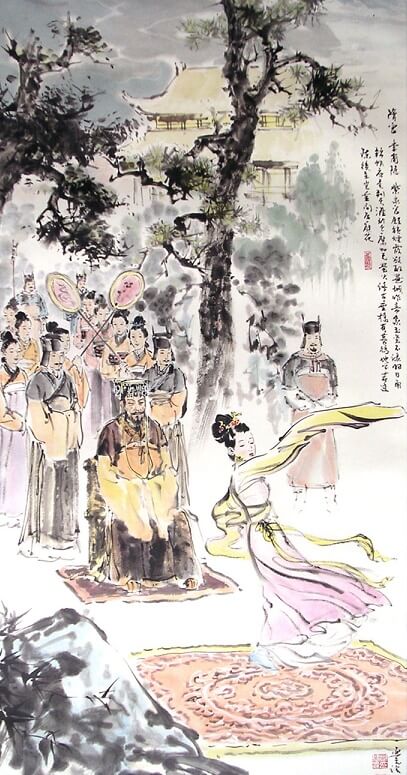The Palace of the Sui Emperor
- Poetry of Li Shangyin
《隋宫》Seven-character-regular-verse

His Palace of Purple Spring has been taken by mist and cloud,
As he would have taken all Yangzhou to be his private domain
But for the seal of imperial jade being seized by the first Tang Emperor,
He would have bounded with his silken sails the limits of the world.
Fire-flies are gone now, have left the weathered grasses,
But still among the weeping-willows crows perch at twilight.
...If he meets, there underground, the Later Chen Emperor,
Do you think that they will mention a Song of Courtyard Flowers?
紫泉宫殿锁烟霞,欲取芜城作帝家。
玉玺不缘归日角,锦帆应是到天涯。
于今腐草无萤火,终古垂杨有暮鸦。
地下若逢陈后主,岂宜重问后庭花。
- Why Chinese poems is so special?
- The most distinctive features of Chinese poetry are: concision- many poems are only four lines, and few are much longer than eight; ambiguity- number, tense and parts of speech are often undetermined, creating particularly rich interpretative possibilities; and structure- most poems follow quite strict formal patterns which have beauty in themselves as well as highlighting meaningful contrasts.
- How to read a Chinese poem?
- Like an English poem, but more so. Everything is there for a reason, so try to find that reason. Think about all the possible connotations, and be aware of the different possibilities of number and tense. Look for contrasts: within lines, between the lines of each couplet and between successive couplets. Above all, don't worry about what the poet meant- find your meaning.
- A Song of the Spring Palace
- Poems on Army Life IV
- Poems on Army Life V
- West Palace, Autumn
- Hearing the River-Song
- The Lotus Gatherers